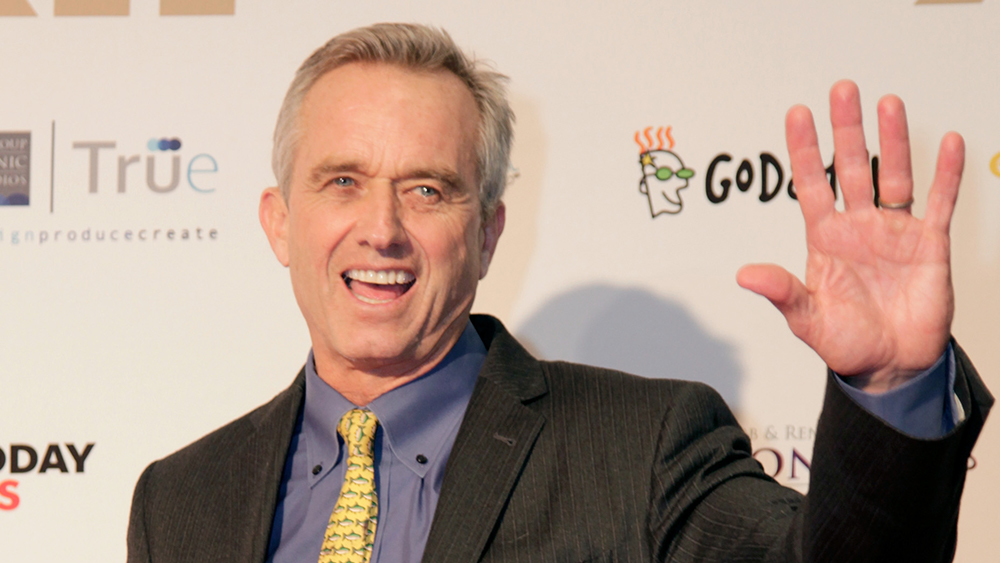FreedomWorks economist predicts EVs will be the auto industry’s “NEXT BIG FLOP”
11/07/2023 / By Laura Harris

Stephen Moore, a senior economist at FreedomWorks and former senior economic adviser to former President Donald Trump, has predicted that America’s electric vehicle (EV) market will be the auto industry’s “next big flop.”
In an interview on Fox News’s Varney & Co. program and an op-ed in the Daily Caller, Moore drew a parallel connection between the Ford Edsel, which was touted as a groundbreaking car in the late 1950s, but ultimately failed to gain traction in the market, and the current push for EVs. Back then, car experts thought that the launch of Edsel, named after Henry Ford’s son, would be a success. However, only 10,000 units were sold and they had to stop making it.
Meanwhile, in a study published by GOBankingRates in September, it was revealed that less than 10 percent of all new car sales in the past years were electric, despite the Biden administration’s push for EVs with a $7,500 subsidy for EV buyers. Now, comparing the situations, both cases involve pushing the public to buy the new cars even though buyers show little to no interest.
“The Edsel was one of the great flops of all time. I’m here to tell you, if these trends continue, we’re going to see the EV market become the next big flop because car buyers don’t want them,” Moore told Fox News. (Related: Electric vehicles are a SCAM – here’s why.)
Leading automakers are having huge losses due to drop in EV sales
The recent developments within the automotive industry seem to support Moore’s claims about EVs.
General Motors, Ford and Mercedes-Benz have acknowledged the weakening demand for EVs and have scaled back their EV targets. Market research firm Canalys also reported a slowdown in the global growth of EV sales, with a 14 percent drop on the 63 percent pace growth in 2022.
Toyota chairman and former CEO Akio Toyoda, a long-time skeptic of rapid EV adoption, backed the claims when he spoke at a Japan Mobility Show in Tokyo last October. He suggested that people are starting to recognize that EVs may not be the solution to carbon emissions. He even questioned the exaggerated benefits of EVs.
As a result, some EV companies like Honda and General Motors, have scrapped their $5 million project plan for joint EV development, while GM has adjusted its EV production strategy to protect pricing and adapt to a slower growth in demand.
Paul Jacobson, the chief financial officer of General Motors, explained that they are slowing down EV production to keep prices reasonable, adjust to lower short-term demand, and boost profits through engineering improvements. The quarterly profit of the company dropped by about $1.5 billion due to higher costs and the impact of selling more electric vehicles.
Meanwhile, Ford also announced that it would temporarily reduce its production of F-150 Lightning pickup trucks by cutting one of the three shifts at one of its plants in October. The automaker is also cutting production of its Mustang Mach-E and reducing planned investments in the EV sector, including delaying the construction of a second battery plant in Kentucky.
As a result, Ford has put a total of $12 billion in spending on hold to expand its EV production capacity, including capital expenses, direct investments and other expenses.
“Given the huge losses that these companies like Ford are suffering because of the EV mania, I saw a statistic this morning that Ford is losing something like between $40,000 and $60,000 per car,” Moore noted.
Learn the truth about how inefficient and not climate-friendly electric vehicles are at RoboCars.news.
Watch this video discussing how electric vehicles are not safe, effective or green.
This video is from the channel The Prisoner on Brighteon.com.
More related stories:
Electric vehicles are unreliable and not cost-efficient – especially in cold weather.
Electric cars lose value TWICE as fast as gas vehicles, study finds.
Electric vehicles have more quality issues than combustion engine cars, new study finds.
Sources include:
Submit a correction >>
Tagged Under:
big government, Bubble, cars, Collapse, debt bomb, debt collapse, economic riot, electric cars, electric vehicles, finance riot, ford, future tech, General Motors, green living, Green New Deal, green tyranny, inventions, market crash, Mercedes-Benz, money supply, products, risk
This article may contain statements that reflect the opinion of the author
RECENT NEWS & ARTICLES
COPYRIGHT © 2017 BIG GOVERNMENT NEWS




















